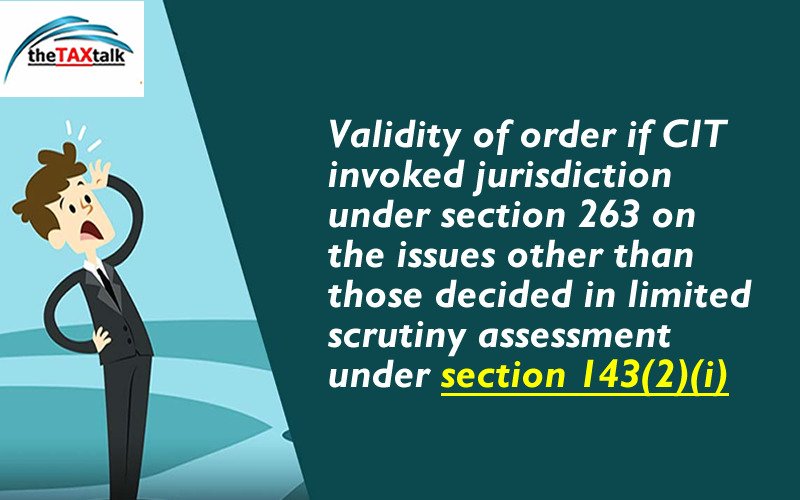![]()
Validity of order if CIT invoked jurisdiction under section 263 on the issues other than those decided in limited scrutiny assessment under section 143(2)(i)
Short Overview As assessee’s case was selected for limited scrutiny under section 143(2)(i), AO could not be expected to make an enquiry of issues. Accordingly, Pr. CIT had exceeded jurisdiction under section 263 directing AO to make fresh assessment on the issues which were not the subject matter of limited scrutiny. Therefore, impugned order passed under section 263 was set aside.
Assessee’s case was selected for limited scrutiny under CASS and AO framed assessment accordingly Pr. CIT exercised jurisdiction under section 263 and directed AO to make fresh assessment on the issues which were not the subject matter of limited scrutiny.
It is held that As assessee’s case was selected for limited scrutiny under section 143(2)(i), AO could not be expected to make an enquiry of issues. Accordingly, Pr. CIT had exceeded jurisdiction under section 263 directing AO to make fresh assessment on the issues which were not the subject matter of limited scrutiny. Therefore, impugned order passed under section 263 was set aside.
Decision: In assessee s favour.
Followed: Nayek Paper Converters v. ACIT (2005) 93 ITD 144 (Kol-Trib.) : 2005 TaxPub(DT) 1019 (Kol-Trib), Su-Raj Diamond Dealers Pvt. Ltd. v. CIT [ITA No. 3098/Mum] : 2019 TaxPub(DT) 8004 (Mum-Trib), R & H Property Developers v. CIT [ITA No. 1906/Mum/2019] and Sonali Hemant Bhavsar v. Pr. CIT [ITA No. 742/Mumbai/2019] : 2019 TaxPub(DT) 4092 (Mum-Trib).
IN THE ITAT, CHANDIGARH BENCH
N.K. SAINI, V.P. & R.L. NEGI, J.M.
Taj Paul Bhardwaj v. Pr. CIT
I.T.A. No. 463/Chd/2019
13 May, 2021
Assessee by: Sudhir Sehgal, CA
Revenue by: Sandeep Dahiya CIT (DR)
ORDER


